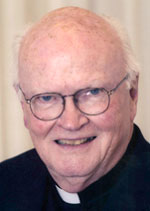America could become a service nation if we had the will to revive civilian national service. This is sometimes called “community service,” although that term now enjoys unfortunate and widespread misapplication as a judicial penalty. Get caught driving under the influence of alcohol and you find yourself working off a fixed number of hours of “community service.”
Civilian national service is something different. It is distinct from military service and, as the Peace Corps so well demonstrates, it does not have to be performed within the territorial limits of the United States.
Moreover, the civilian national service I have in mind is not compulsory as would be military service under draft legislation. Two words justified compulsory military service during World War II: Pearl Harbor. No such justification is readily available today, although a good case might be made that drift and purposelessness are sufficiently widespread among the young that compelling the young (say, those between 18 and 26) to perform a year or two of national service might be a very good idea.
[hotblock]
We should encourage national service as a new rite of passage for young Americans. It could transform the nation as well as the people rendering the service. It could provide us with a justifiable claim to being called a service nation.
It would help the rite of passage idea to catch on if something resembling the post-World War II G.I. Bill of Rights for returning veterans were there on the incentive side of this policy initiative. For any of this to happen, however, there is need for public-private cooperation, philanthropic support and the expression of increased enthusiasm on the part of the young who are ready and willing to render community service.
As a beneficiary of the G.I. Bill of Rights after World War II, I would urge candidates for the presidency in 2016 as well as all forward-thinking members of Congress to consider this idea right now and to think about forging a link between service and higher education.
For each month of military service, veterans of World War II were eligible for two months of free higher or special vocational education. They “earned” it through their service.
In function of the higher education received under the G.I. Bill, veterans moved into better and higher-paying jobs in the postwar economy and, accordingly, paid higher income taxes. They’ve been paying their higher taxes since graduating from college around 1950. This has been the best investment in human capital that our federal government has ever made. The return to Treasury has been enormous.
One can argue that the G.I. Bill was a self-financing program — a point to be made when objections are raised today that the nation cannot afford any expansion of national service.
If a full or partial G.I. Bill-type of educational benefit were attached to a 21st-century call to civilian national service, today’s young Americans would have a nice incentive to reinforce their natural desire to serve. If the year of service idea catches on, it could translate into 24 months of educational benefits in various forms, not least among them tuition grants and student loan forgiveness, thus easing the student loan indebtedness that burdens college students today.
We will need a culture shift in America before the community service idea gains widespread support. Progress on this front, however, will mean progress toward a better America. There is a link waiting to be forged between civilian national service and post-service higher educational benefits in order for this progress to happen.
***
Jesuit Father William Byron is university professor of business and society at St. Joseph’s University in Philadelphia. Email: wbyron@sju.edu.
PREVIOUS: Some feared papal invasion in 19th century America
NEXT: Can’t travel to explore your faith? Try a virtual pilgrimage




Share this story